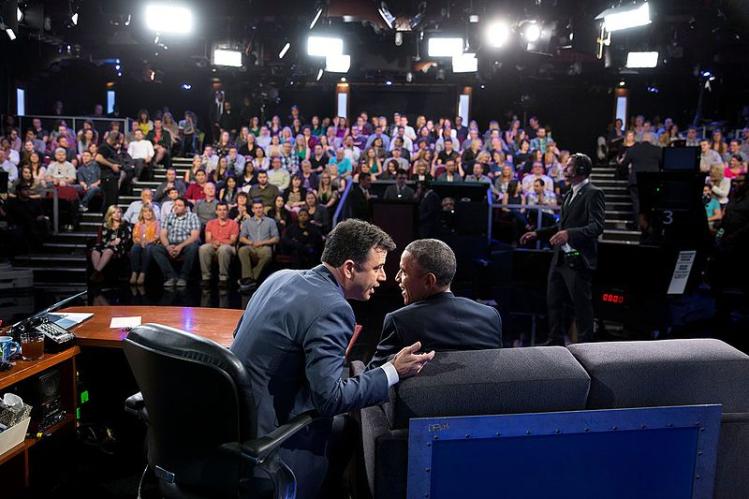
Those of us in the world of column-writing and policy wonkery ought to be humbled: It often takes a celebrity, preferably a comedian, to break through with an argument that transforms public understanding.
In particularly successful cases, the celebrity demolishes conventions and blurts out a deep truth that only occasionally makes it into the day-to-day arguments and journalistic accounts.
So here’s hoping that Jimmy Kimmel wins some humanitarian awards for his thirteen-minute monologue about the recent birth of his son, Billy. He described how emergency heart surgery days after Billy was born saved his child’s very new life.
Kimmel used his personal experience to ask the philosophical questions that need to animate every debate over whether health care is a right that ought to be underwritten by government: Why should being born with any sort of defect raise your insurance costs all your life? Why should the babies of well-off people, including comedians, have a better shot at surviving than newborns whose parents lack the money to buy health insurance? More generally, why should anyone be denied coverage?
Here is the policy core of Kimmel’s monologue that those who advocate health care for all might consider memorizing like a catechism answer, a Torah portion or a favorite verse of scripture or poetry:
Before 2014, if you were born with congenital heart disease like my son was, there was a good chance you would never be able to get health insurance because you had a pre-existing condition. You were born with a pre-existing condition, and if your parents didn’t have medical insurance, you might not live long enough to even get denied because of a pre-existing condition.
If your baby is going to die, and it doesn’t have to, it shouldn’t matter how much money you make. I think that’s something now, whether you’re a Republican or Democrat, or something else, we all agree on that, right? I mean, we do. Whatever your party, whatever you believe, whoever you support, we need to make sure that the people who are supposed to represent us—people who are meeting about this right now in Washington—understand that very clearly.
What makes this especially powerful is what appears to be the political naïveté that underlies Kimmel’s sentiment: that regardless of party, we all think everyone is entitled to equal medical treatment.
If Kimmel were describing politics in just about any other economically advanced democracy, he would be absolutely right. Conservative parties elsewhere routinely support a very large role for government in guaranteeing health care. Britain’s Conservative Prime Minister Theresa May, who faces an election next month, brags about funding the National Health Service at record levels. Her opponents challenge her on what this means in practice, but that’s not the point: She wants voters to know she supports Britain’s essentially socialized system.
But Kimmel’s assertion is not accepted by right-leaning politicians in the United States. It is not, alas, something “we all agree on.” This is why Republicans are trying to repeal the Affordable Care Act.
A few honest ideologues are willing to admit this. “I do not believe health care is a basic human right,” Congressman Raul Labrador, an Idaho Republican, told a town hall meeting earlier this year. The crowd reacted angrily, suggesting they’re with Kimmel.
Republican Representative Mo Brooks of Alabama likes the idea of requiring those “who have higher health care costs to contribute more to the insurance pool,” which would have the effect of “reducing the cost to those people who lead good lives, they’re healthy.”
Let’s count the problems here. What, exactly, did Billy Kimmel do wrong to have a heart problem on his first day of life? What should we do about all those Americans who lead “good lives” by Brooks’s exacting definition but don’t earn enough to afford good insurance? Why should rich people who live “bad lives” have a huge health care edge over lower-income people who jog every day?
Republicans are having trouble with their repeal bill because the gut response of most Americans is that Kimmel is right and right-wing ideologues are wrong. Any parent who has had a child get very sick knows this. That is why President Trump and GOP leaders try to pretend that a cruel bill threatening the health coverage of millions is far less damaging than it is.
After Kimmel’s intervention, we have to face the fact that either we pay the public cost of covering everyone, or kids like his son will die when they could have lived.
E. J. Dionne’s email address is [email protected]. Twitter: @EJDionne
(c) 2017, Washington Post Writers Group

